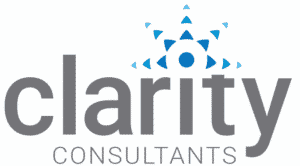Employee career empowerment is a cornerstone of organizational success, driving engagement, innovation, and long-term loyalty. Organizations can cultivate a motivated, high-performing workforce ready to tackle evolving business challenges by implementing strategic empowerment initiatives.
The Value of Employee Career Empowerment
Career empowerment transcends traditional notions of job advancement. It’s about equipping employees with the tools, confidence, and autonomy to steer their professional journeys. Employees who feel empowered are more engaged, innovative, and likely to remain loyal to their organization.Empowered employees bring fresh perspectives and the drive to contribute meaningfully to their roles. As a result, organizations benefit from increased productivity, reduced turnover, and a robust talent pipeline to meet future leadership needs.
Effective Career Growth Strategies
Personalized Career Pathing
Providing clear career paths tailored to individual strengths and aspirations ensures employees see a future within the organization. Conduct regular one-on-one meetings to understand and align their goals with business objectives.Mentorship Programs
Pairing employees with experienced mentors fosters knowledge-sharing and enhances skill development. Mentors provide guidance on navigating challenges and identifying growth opportunities, ensuring mentees feel supported in their journey.Skill Development Opportunities
Encourage continuous learning by offering access to training programs, workshops, and certifications. Whether through online platforms or in-person seminars, expanding employees’ skill sets ensures they remain competitive.Regular Feedback and Recognition
Establishing a culture of constructive feedback ensures employees understand their strengths and areas for improvement. Acknowledging achievements, regardless of size, helps cultivate a sense of accomplishment and boosts motivation.Cross-Functional Projects
Involving employees in cross-departmental initiatives allows them to broaden their experience and build relationships beyond their immediate teams. This exposure helps employees develop leadership qualities and adaptability.
Leveraging Professional Development Techniques
Organizations must adopt modern professional development techniques to ensure employees have the tools to grow effectively. Examples include:- Microlearning Modules: Bite-sized, easily digestible content ensures employees can learn on the go without disrupting productivity.
- Coaching Sessions: Tailored coaching provides employees with actionable insights to succeed.
- Interactive Workshops: Engaging, hands-on training programs enable employees to practice new skills in a safe, collaborative environment.
- eLearning Platforms: Offering on-demand courses allows employees to pursue learning at their own pace, fostering autonomy.

